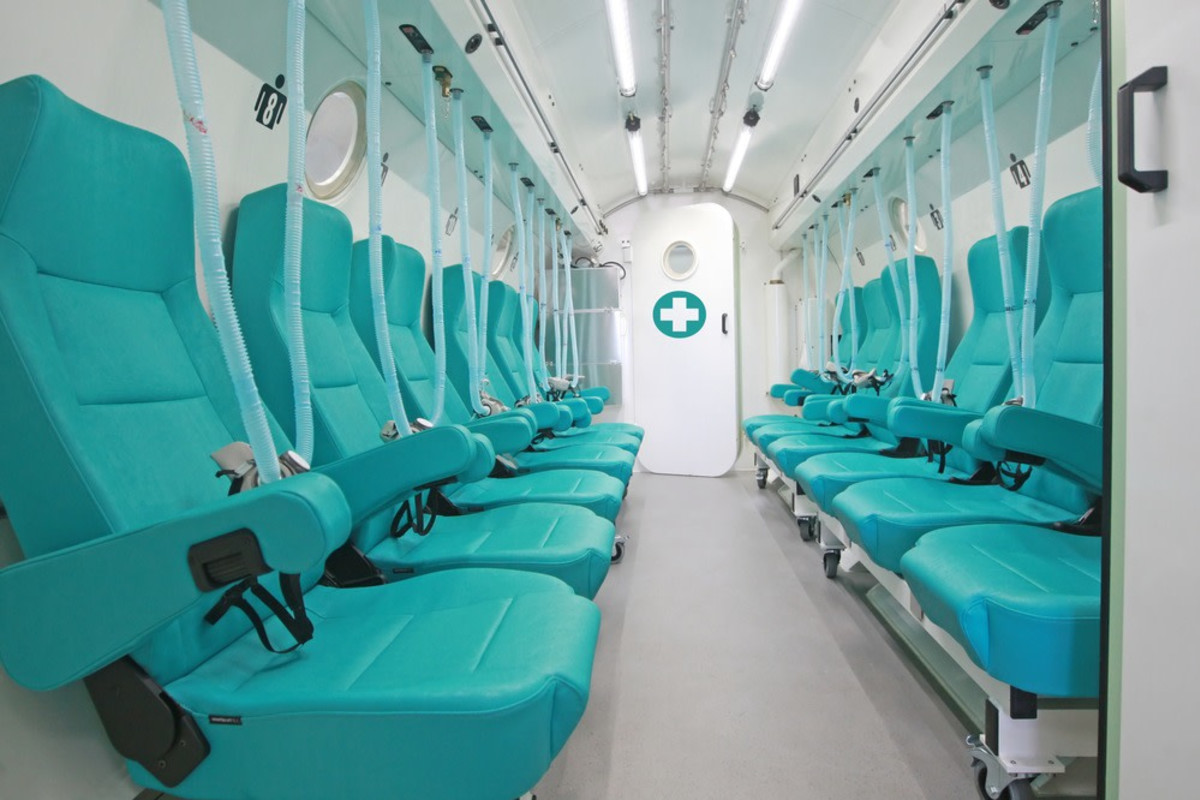A global breakthrough in the treatment of post-traumatic stress disorder: Israeli researchers have shown that treatment in a pressure chamber improves the condition of PTSD victims – post-traumatic stress disorder, who do not respond to psychotherapy treatments and psychiatric drugs. The researchers believe that the unique therapeutic protocol they developed affects a “biological wound” created in the brains of post-trauma victims and temporarily improves symptoms such as flashbacks, constant alertness, and irritability. The findings give new hope to the millions of PTSD victims in the world and their families.
The study was led by Prof. Shai Efrati, director of the pressure chamber at Assaf Harofeh Hospital, and Dr. Keren Duanis-Barak from the Faculty of Medical and Health Sciences of Tel Aviv University along with other researchers. The study was published in the Journal of Clinical Psychiatry.
The State of Israel is considered a post-trauma powerhouse. By Black Saturday, 6,000 liberated fighters who were recognized as PTSD victims were reported in Israel, in addition to many other soldiers and civilians who are not recognized by the authorities. Following the Shivah tragedy in October and the war that continues to this day, there was a sharp increase in the number of victims, and estimates are that their number will reach tens of thousands of those diagnosed, from among soldiers and the general population.
Post-traumatic stress disorder is defined as a mental result of exposure to a life-threatening event, and develops in approximately 20% of those who have experienced this type of difficult experience. The disorder can damage the professional, social, and family functioning and the quality of life of the person suffering from it, and in extreme cases it can severely affect his professional and family functioning. Her symptoms include a variety of emotional and cognitive changes, nightmares and flashbacks, alertness, irritability and avoidance of activity – for fear of exposure to triggers that bring the person back to the traumatic experience. A significant part of the victims do not respond to psychotherapeutic treatment and the accepted psychiatric drugs. Past studies show that these cases are characterized by changes in the structure and function of the brain tissue, or ‘biological injury’ in the tissue, which explain the resistance to treatment. Our study focused on this population, with the aim of examining whether the pressure chamber treatment helps them.
In the study, which began in 2019 and ended in the summer of 2023, 98 discharged IDF soldiers who were diagnosed as suffering from PTSD and did not respond to psychotherapy and medication participated in the study. The participants were divided into two groups: one group received hyperbaric treatment with oxygen and increased pressure, while members of the second group underwent the same procedure, but received Placebo treatment – that is, they only breathed normal air, 28 participants from each group finished the process and the analysis that follows.
The Ministry of Defense currently supports and finances pressure chamber treatment for fighters who need it. According to Dr. Duanis-Barak, the treatment was performed according to a unique protocol developed in Israel: “Each patient receives a series of 60 two-hour treatments in the pressure chamber and is exposed to 100% oxygen at a pressure of 2 atmospheres, twice the normal air pressure at sea level. Our protocol includes alternating breathing of oxygen and normal air: every 20 minutes the patient removes the oxygen mask and breathes normal air for 5 minutes. The drop in the oxygen level activates healing processes in the tissues and intensifies the therapeutic effect.”
The encouraging results were evident on two levels, fMRI imaging – an MRI device that shows brain function live, and clinical changes that were evident in the patient’s symptoms. In the group that received hyperbaric treatment, a significant benefit was observed: an improvement in connectivity within the brain networks along with a decrease in all the clinical symptoms characteristic of PTSD. In the placebo group, on the other hand, no changes in the brain or symptoms were observed.
“We have shown that the pressure chamber treatment induces biological healing in the brains of post-traumatic victims,” said Prof. Efrati, “The healing of the biological wound also affects the clinical symptoms, and allows patients to respond to psychological treatments as well. We believe that the pressure chamber treatment, through the unique protocol we have developed, can in the future bring A balm for many around the world who suffer from PTSD, and allow them to return to a normal life path in society and in the bosom of the family.”
